During the group discussion session on the draft Resolution of the National Assembly stipulating a number of mechanisms and policies to remove difficulties and obstacles in organizing the implementation of the Land Law on the morning of November 19, National Assembly deputies spent a lot of time analyzing the reasons why compensation, support and resettlement continue to be a hot spot.
In particular, delegate Nguyen Quang Huan (HCMC) emphasized that if the land price problem is not thoroughly resolved, all reform efforts will easily fall into a deadlock.
"Incorrect way of determining land price"
According to Mr. Huan, the draft Resolution has pointed out two major difficulties: collecting input information to determine land prices and the mechanism for selecting valuation consultants. This is also the reason why people are dissatisfied and have been complaining for many years.
"The reason is that from the beginning, we determined that the input land price information was incorrect, not following the spirit of Resolution 18, which is to follow the market mechanism. We said we followed the market price but then returned to the old way of doing things, leading to confusion right from the price determination step. Meanwhile, we have not clarified what "market price" is," the delegate analyzed.

Delegate Nguyen Quang Huan (HCMC) (Photo: Quang Khanh).
He said that the current understanding of "market price" is very different. Some places only rely on a few isolated transactions or a case of selling land at a high price and consider it a common ground, while it is only a personal transaction, not reflecting the real value.
According to him, market prices must be determined over a long enough period of time, possibly from 6 months to 1 year, linked to the process of announcing planning, preparing resettlement impact assessment reports and announcing land recovery.
The delegate cited international experience, such as the World Bank, using a "closing date" - the time the State announces the repossession; assets arising after this date are not considered for compensation to avoid price fluctuations due to psychology. He emphasized that just announcing the planning will cause land prices to immediately increase due to behavioral factors, not land rent.
"Without a systematic resettlement report, it is difficult for even the Provincial People's Council or People's Committee to have a comprehensive view of market prices in the area under their management, leading to a situation where each project compensates differently for the same area, easily causing comparisons and prolonged complaints.
People do not understand market prices in detail as much as policymakers, but as soon as they see that their land price is lower than the neighboring land, they wonder. Therefore, to solve the compensation problem at its root, we must first deal with the land price problem," said delegate Nguyen Quang Huan.
Regarding the difficulty of lacking local consulting units, Mr. Huan said that this should not be considered a bottleneck. If the bidding is open and the service has a reasonable unit price, consulting units in Hanoi and Ho Chi Minh City can completely go to the provinces, even the border areas to perform.
He cited ODA projects of the World Bank (WB) and the Asian Development Bank (ADB) where resettlement reports are always more detailed than technical feasibility reports.
"Because it was done strictly from the beginning, there were almost no complaints. Vietnam can completely apply this method to domestic budget capital projects," he said.
Need for transparency in compensation coefficient and monitoring of recovery
Delegate To Thi Bich Chau (HCMC) said that the regulation allowing land acquisition before approving the compensation plan should only be applied when there is an independent monitoring mechanism. She suggested that the Provincial People's Council must directly monitor and the entire progress and list of affected households must be made public and regularly updated on the electronic information portal.
According to her, it is absolutely necessary to avoid abusing the concept of "urgent projects" to shorten the process and avoid responsibility. During the implementation process, there must be supervision by local people's representatives, especially the Fatherland Front, with a "clear, complete and verifiable" supervision process.
Regarding compensation prices, she said that applying the land price table and adjustment coefficient is appropriate, but a coefficient ceiling must be specified, excluding special cases.
"The formula for calculating the coefficient needs to be made public so that people and businesses have a basis for comparison, reflection and complaints. This is an issue that has been of concern to people for many years due to lack of transparency," said the delegate.
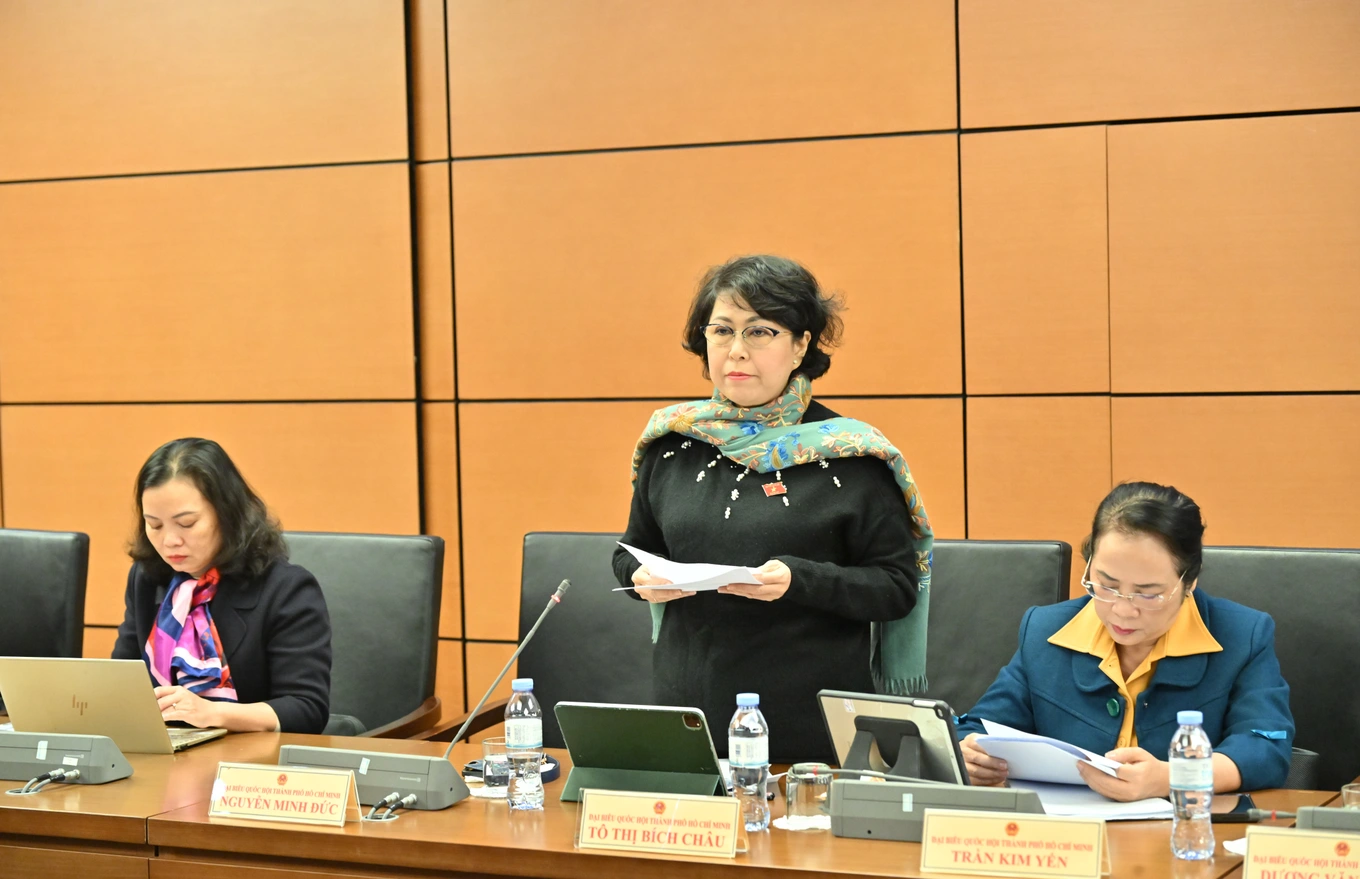
Delegate To Thi Bich Chau (Photo: Quang Khanh).
Regarding social criticism activities, Ms. Chau emphasized that the Fatherland Front must organize a full criticism conference, not just send documents to solicit opinions. The law allows sending documents 15 working days in advance, but in reality, many places send them very urgently, making the criticism not ensure quality. Therefore, she proposed to clearly stipulate in the coordination regulations between the Front - People's Committee - People's Council that for sensitive contents such as compensation prices, the criticism must be carried out by an official conference with a concluding document.
Also related to the dialogue mechanism, delegate Nguyen Quang Huan said that the time for posting the compensation plan of only 10 days and the dialogue of 30 days is "too short". While a feasibility report usually takes 6 months to 1 year, the people - those directly affected - only have more than a month to review and respond.
"It's okay for a project to be delayed for 2-3 years, but the people only have 30 days to have a dialogue, which is too short. They need time to consult with lawyers, experts, and knowledgeable people before making a decision," Mr. Huan said, suggesting inviting experts who have worked for the WB and ADB to perfect the consultation mechanism.
Dantri.com.vn
Source: https://dantri.com.vn/thoi-su/khong-xac-dinh-dung-gia-dat-theo-thi-truong-boi-thuong-se-mai-be-tac-20251119122820493.htm




![[Photo] The Standing Committee of the Organizing Subcommittee serving the 14th National Party Congress meets on information and propaganda work for the Congress.](https://vphoto.vietnam.vn/thumb/1200x675/vietnam/resource/IMAGE/2025/11/19/1763531906775_tieu-ban-phuc-vu-dh-19-11-9302-614-jpg.webp)



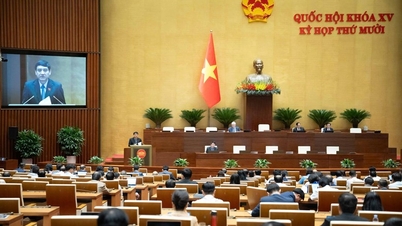

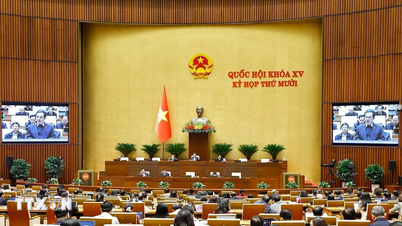

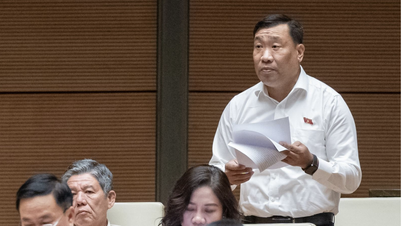

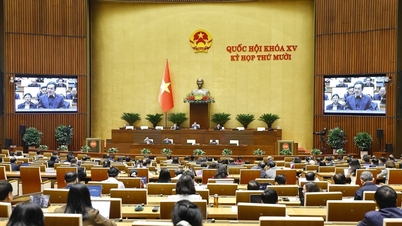
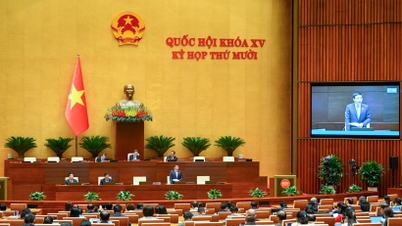

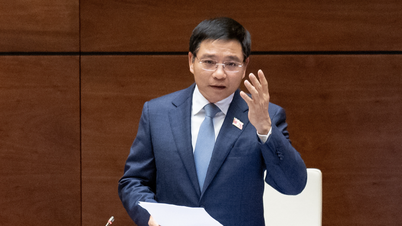

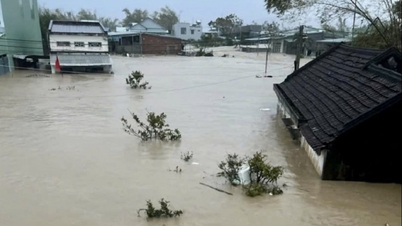

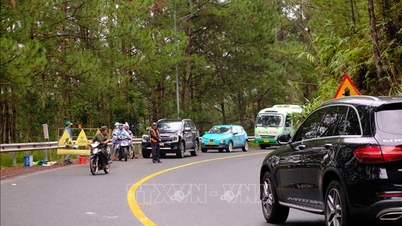
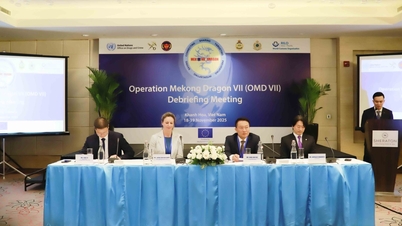










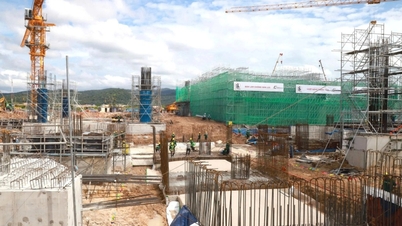
















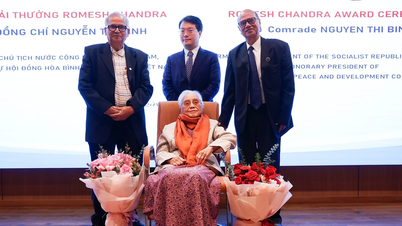



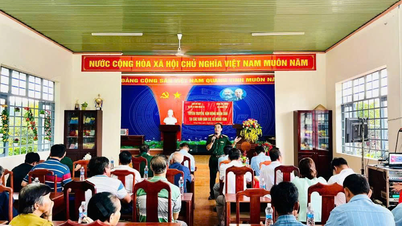


















































Comment (0)